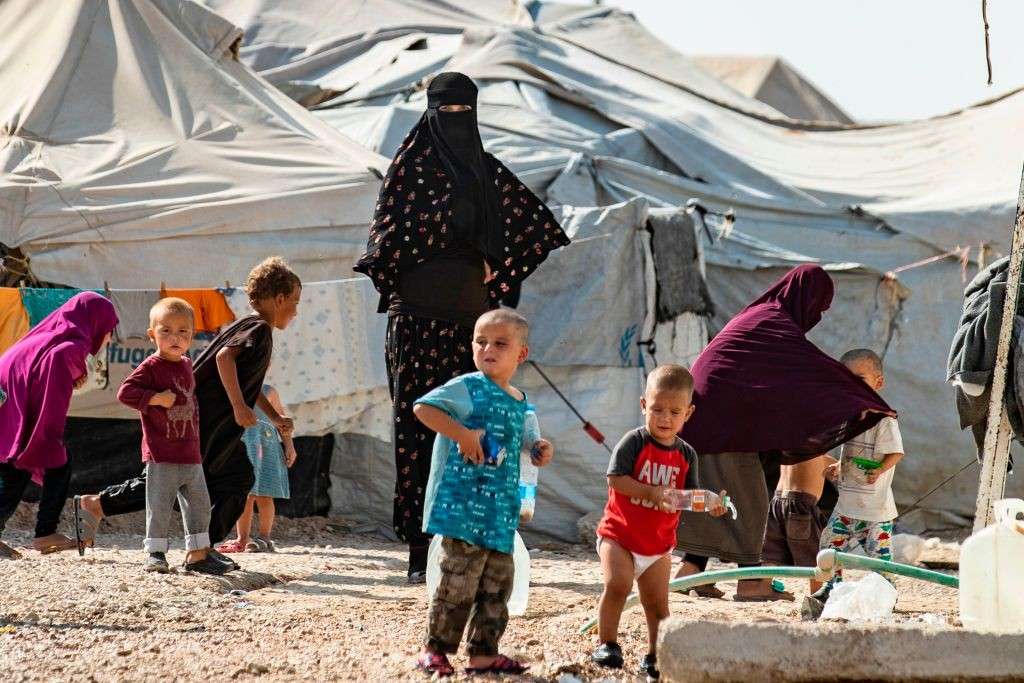Syrian government visits ISIS-linked detention camp

Syria has taken one of the first critical steps into becoming a united country after 14 years of civil war which divided many ethnic groups, notably the Kurds.
A Syrian government delegation has visited Al-Hol, a sprawling desert camp in Kurdish-controlled northeast Syria that houses tens of thousands of people linked, often tenuously, to the defeated Islamic State (ISIS). It was the first such visit since the camp’s establishment and a potential step towards the reintegration of Syria’s fractured regions.
The visit, reported by Ashraq Al-Awasat, brought together representatives from the Syrian government, the U.S.-led coalition against ISIS, and officials from the Kurdish autonomous administration on May 18.
Discussions involved “establishing a mechanism for removing Syrian families from Al-Hol camp,” who are currently facing dire conditions of deprivation and violence, said Syria’s President, Ahmed al-Sharaa.
The camp holds some 37,000 people who have had alleged ties to ISIS, including 14,500 Iraqis, and a high-security section for the wives and children of foreign fighters. Trapped between a Kurdish administration that lacks the formal capacity to try them, and governments that have previously dragged their feet on the issue, detainees have been stuck in legal limbo for more than five years after the group’s defeat in 2019.
Earlier this year, in March, Sharaa struck a deal with Mazloum Abdi, the commander of the Kurdish-led Syrian Democratic Forces (SDF). The deal aimed to bring the Kurds under the civil and military control of Damascus, and guaranteed the safe return of displaced Syrians, including those trapped in camps like Al-Hol.
But while the joint initiative suggests a thaw in Syrian-Kurdish relations, little concrete progress has been made.
In February, Kurdish authorities began working with the United Nations to begin emptying Al-Hol and other camps by the end of the year. However, three months later, the details of return, reintegration, and retribution remain fraught, especially in the absence of a functional transitional justice system in the war-scarred country.
Abdi had previously shown a willingness to hand control of detention centers to the central government, but this has also remained on hold.
A Kurdish administration official, Sheikhmous Ahmed, stated that the fate of those families “is linked to the countries that have nationals (in the camp), and to the international coalition”, which supported Kurdish-led forces who fought ISIS, detaining its fighters and their relatives.
The Kurds, for their part, have repeatedly called on countries to repatriate their citizens, but foreign governments have allowed home only a trickle, fearing security threats and a domestic political backlash.
For now, the fate of thousands rests on slow diplomacy and bureaucratic hurdles as officials try to rebuild the country after 14 brutal years of conflict.
Ashraq Al-Awasat/ Maghrebi
Want to chase the pulse of North Africa?
Subscribe to receive our FREE weekly PDF magazine













